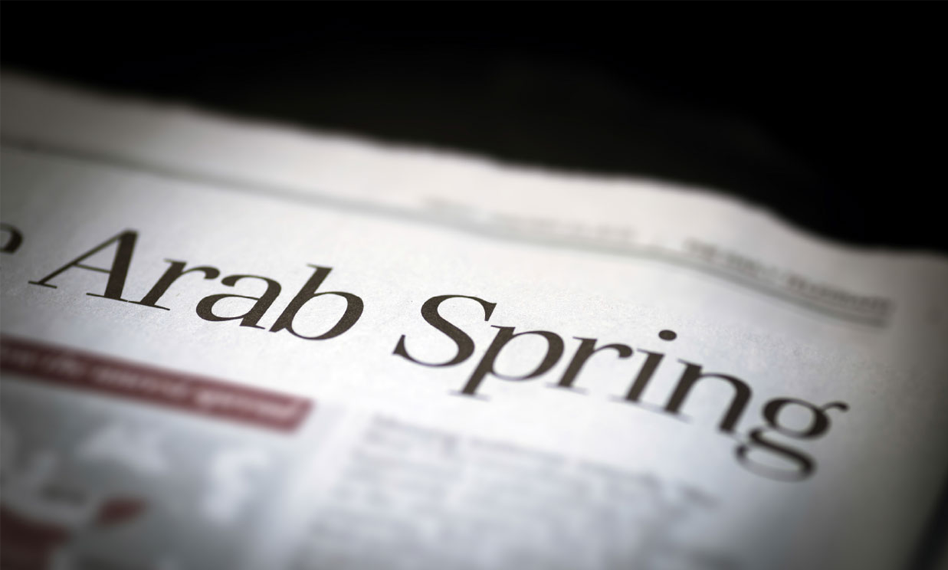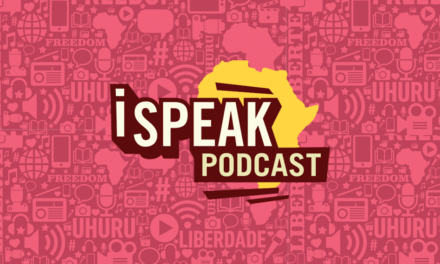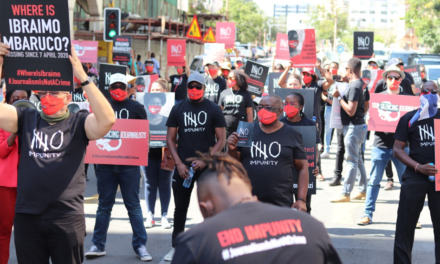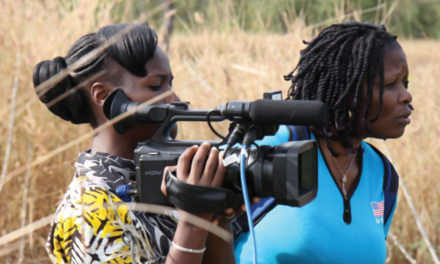
Media Reform and the Arab Spring: a tale of struggle and hope

The struggle between autocratic structures and democratic change took place in the media landscape as much as it developed in the political arena in post Arab uprisings. The nascent agency developed by journalists transformed them into full political actors, in a hybrid media scene coloured by a continuous wrestle between continuity and change, exacerbating the uncertainty about the future.
The lessons from the so-called Arab Spring revolutions raised questions about the media’s ability to support democratic change and renewed questions about journalism’s ambiguous role, undermining the inherited structures of autocracy and supporting them at times. This ambiguity of the role of the media in bringing about change in North Africa is that, the expected democractic reforms and “gains” of the Arab Spring revolutions are being easily undone by the recent renewal of autocracy and the survival of repressive regulation in dealing with expressing dissent via the old press codes or the penal codes and the newly introduced anti-terrorism regulation.
Charges such as belonging to illegal or terrorist groups or aiding terrorist activities are becoming a trend in quelling dissent through unlawful detention of journalists and activists. What follows are flawed trials based on vaguely worded charges. Egypt leads in the crackdown on critical reporting as part of a larger repression of rights and freedoms unseen in the modern history of the country. In their report on Egypt for 2019, Amnesty International denounced “a range of repressive measures against protesters and perceived dissidents, including enforced disappearance, mass arrests, torture and other ill-treatment, excessive use of force and severe probation measures” citing arrests and detention of at least 20 journalists solely for peacefully expressing their opinions”.
Unlike experiences of transitions to democracy around the world, the media landscape in the North Africa region manifests a continuous confrontation between structural constraints and a nascent autonomous journalistic agency supported by a dynamic civil society active in counter balancing attempts of political co-optation and the return of the traditions of the past. This struggle seems to signal a victory of the former autocratic cultures over a genuine change as elites continue to consider the media as a positive messenger of their activities. However, the resilience of the claims for freedom and dignity, including independent and professional media, means the struggle is not yet settled. Low performance in terms of freedom of the press paints a bleak picture all over North Africa. Tunisia continues to lead as the best-performing North African country in the World Press Freedom Index compiled by Reporters Without Borders with most of North African countries showing negative performance: Algeria is at 146th and Egypt at 166th.
Media Structures: continuity or change?
Tunisia continues to present a leading example in media regulatory reform although this reform is fragile and subjected to continuous shifts in political alliances and unstable governments. The adoption of decree-Laws 115 on print media and 116 on audiovisual media, were crucial in dismantling the old system as they replaced restrictive legislation that used to limit journalists’ activities to reporting on the ruling clan. The establishment of an independent broadcast regulator (the High Independent Authority of the Audiovisual Commission, HAICA) in 2013 presents a genuine achievement in view of the political co-optation of similar bodies in the North Africa region. For instance, the newly formed state institutions in Egypt in 2017 are nothing else than a new censorship tool controlled by the military regime. The three new authorities (the Supreme Council for Media Regulation, the National Press Authority, and the National Media Authority) are under the control of the regime who has the final say on the nomination of their members.
The introduction of private media ownership has helped challenge the entrenched state control over media in the region. However, a chaotic marketisation accompanied by instrumentalisation of these new media projects by businessmen with political ambitions or links to regimes, transformed the nascent pluralism in the media landscape into a facade, limiting it again to the representation of the powerful. In Tunisia, despite a noticeable diversity in the media content, media barons have waged a war against the new broadcast regulator, using their investments in media to buy a say in the political arena.
Lacking political support, HAICA is not able to effectively implement sanction against media outlets owned or supported by politicians, including suspending the broadcast of those channels and radios operating illegally without a license. In Egypt, most of private media were recently bought, willingly or forcefully, by a new entity representing a monopoly: the Egyptian Media Group recently became the largest media conglomerate in the country, owned by Eagle Capital, a state-owned investment owned by the General Intelligence, in unprecedented direct control of media by the security institution. In Morocco, the financial viability of independent media, which is not owned by businessmen linked to the regime, is proving impossible. Through manipulation and control of the advertising market, the regime applies a carrot and stick approach to suppress critical reporting and encourage compliant coverage.
Frequent legal prosecution against critical journalists amounts to judicial harassment. This pressure leads to the closure of media projects due to bankruptcy and/or to legal harassment. In Libya, the civil conflict has turned journalists and their media into a new platform for propaganda, pushing most of the new media projects to close doors or to move operations to neighbouring countries. As per a report of RSF, the media “are now embroiled in an unprecedented crisis, with several media outlets being press-ganged into serving the various warring factions.”
The digital space: activism versus policing
The cyber space became a contested arena between activists and autocratic regimes increasingly investing in surveillance to police the public sphere and to create fake public opinion, disputing its initial function during the uprisings and their aftermath as an engine of liberation. The use of the “fake news” as an excuse to quell dissenting narratives and jail activists and journalists has been further exacerbated with the global pandemic of COVID-19. According to a report by Freedom House, forms of widespread repression include removing content, blocking access to websites, arrests and unlimited detention, widespread surveillance, and new laws that further restrict internet freedom, in the name of protecting the public health and fighting misinformation in the coverage of the pandemic. New restrictive laws have been proposed or implemented in Egypt, Morocco and Tunisia with overly broad and vaguely written provisions limiting online speech and activism, according to the same report.
However, policing cyberspace by autocratic regimes precedes the pandemic. Recently, journalists and activists were subjected to surveillance from malicious spyware programmes granting regimes the ability to monitor their activities in real time. According to a large study by the Citizen Lab, Pegasus spyware developed by the Israeli firm NSO Group communicating has been used in an abusive manner to target civil society in Morocco among other countries. It is believed that this programme used in digital espionage, was employed by the Saudi regime to spy on the critical journalist Jamal Khashoggi facilitating his killing.
Agency and professionalism
My research with Arab journalists on how they perceive their role as reporters on the political change and inherent conflicts has demonstrated rejection among them to embrace universal values in the model of neutral reporting on opponents. While representation of diverse views is acknowledged as indication of quality in their reporting, most journalists interviewed see their professional identity as solidly linked to their political loyalties, personal background and where they locate themselves within the political struggle.
This rejection of neutrality or impartiality by a majority of journalists, considering their work as contributing to shaping the public opinion and not only reporting facts, questions the efficiency of training schemes modelled on the western values of good journalism. While these schemes provided journalists with important knowledge and exposure to different experiences, they failed to help journalists embed these new practices in their working environment that remain not impacted by this new culture. Suffering weak job security and subjected to multiple pressure, this nascent journalistic agency continues to fight the entrenched model of the journalist obedient to power. While domesticating western values of good journalism has led in some cases to the transformation of local media norms, the culture of production in newsrooms is hybrid, bringing together the local and the global in search for an answer on how best to report on complex and often irreconcilable conflicts.
References:
- Amnesty report on Egypt, 2019 https://www.amnesty.org/en/countries/middle-east-and-north-africa/egypt/report-egypt/
- RSF ranking https://rsf.org/en/ranking, and an article from the press: https://www.middleeastmonitor.com/20200504-rsf-tunisia-ranks-first-in-arab-world-for-freedom-of-press/
- For research on Tunisia media reform see: Chouikha, Larbi. 2015. La difficile transformation des médias: des années de l’independance à la veille des élections de 2014. Tunis: Editions Finzi ; El Issawi, Fatima. 2012. “Tunisian media in transition.” Carnegie Endowment for International Peace. Washington. http://www.lse.ac.uk/media@lse/Polis/Files/Tunisian-Media.pdf; Farmanfarmaian, Roxane. 2014. “What Is Private, What Is Public, and Who Exercises Media Power in Tunisia? A Hybrid-Functional Perspective on Tunisia’s Media Sector.” The Journal of North African Studies 19 (5): 656–678.
- Al-Galy, M. and Al-Sayed, M., 2020. Three Presidential Decrees To Establish The Three Media Authorities. [online] Youm7. Available at: <https://www.youm7.com/story/2017/4/11 [Accessed 3 December 2020].
- See Labidi, Kamal. 2017. “Tunisia’s media barons wage war on independent media regulation”. In The Service of Power: Media Capture and the Threat to Democracy, ed. Anya Schiffrin. Washington, DC: Center for International Media Assistance. https://www.cima.ned.org/wp-content/uploads/2015/02/Capture10_Tunisia.pdf
- See the report on media ownership monitor in Egypt, https://www.mom-rsf.org/en/countries/egypt/
- See CPJ report on a “climate of pervasive surveillance, harassment” for Moroccan journalists;
- See el Issawi, Fatima, 2021. “Alternative Public Spaces in Hybrid Media Environments: Dissent
in High Uncertainty,” Journalism and Mass Communication Quarterly (published online). https://journals.sagepub.com/doi/pdf/10.1177/1077699021998381 - See RSF report on unsafe and co-opted journalism in Libya https://rsf.org/en/libya
- See link to report https://freedomhouse.org/report/freedom-net/2018/rise-digital-authoritarianism
- See report by CPJ on Moroccan journalists citing malfunctioning in their electronic devices they believe it is linked to surveillance by the government https://cpj.org/2019/07/moroccan-independent-journalists-describe-climate/
- See link to Citizen Lab report https://tspace.library.utoronto.ca/bitstream/1807/95391/1/Report%23113–hide%20and%20seek.pdf
- See a press article in a legal case against the spyware company accusing it to playing a role on Khashoggi murder https://english.alaraby.co.uk/english/indepth/2019/10/3/this-israeli-spyware-helped-saudi-arabia-spy-on-khashoggi
- See a link to the website of the research project: https://www.arabmediadem.org










